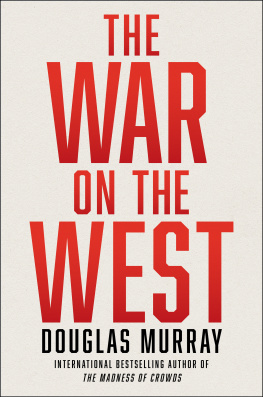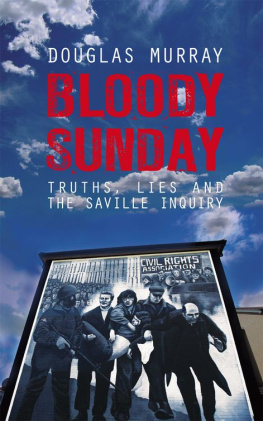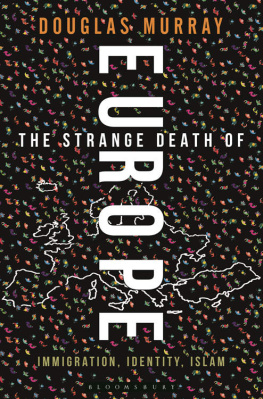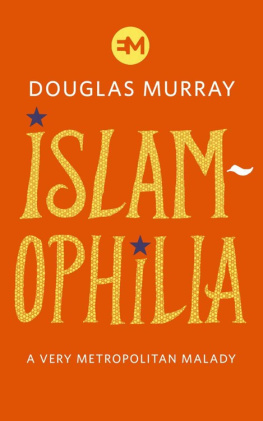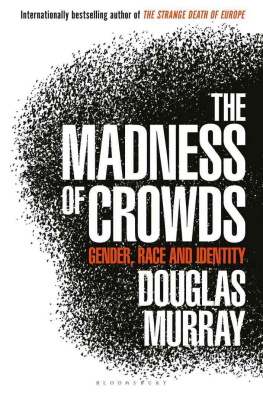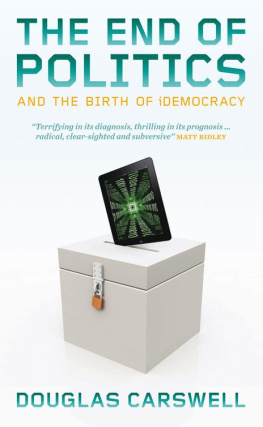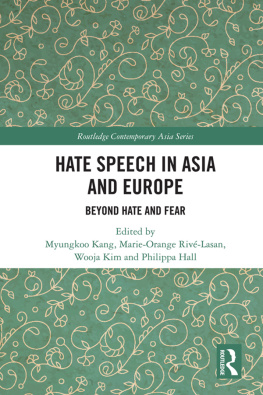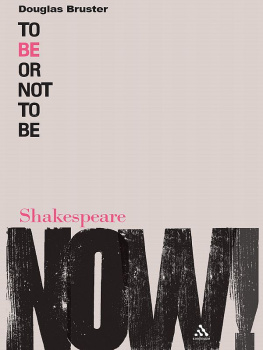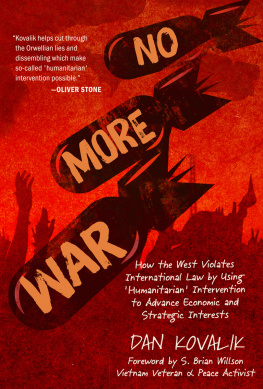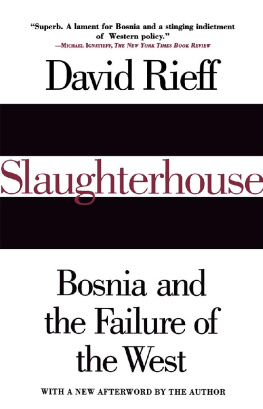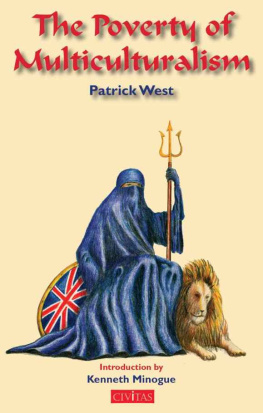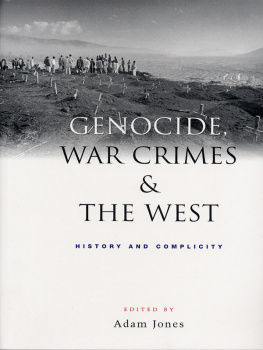In recent years it has become clear that there is a war going on: a war on the West. This is not like earlier wars, where armies clash and victors are declared. It is a cultural war, and it is being waged remorselessly against all the roots of the Western tradition and against everything good that the Western tradition has produced.
At first, this was hard to discern. Many of us sensed that something was wrong. We wondered why one-sided arguments kept being made and why unfair claims kept being leveled. But we did not realize the full scale of what was being attempted. Not least because even the language of ideas was corrupted. Words no longer meant what they had until recently meant.
People began to talk of equality, but they did not seem to care about equal rights. They talked of anti-racism, but they sounded deeply racist. They spoke of justice, but they seemed to mean revenge.
It is only in recent years, when the fruits of this movement have come into plain sight, that its scale has become clear. There is an assault going on against everything to do with the Western worldits past, present, and future. Part of that process is that we have become locked in a cycle of unending punishment. With no serious effort at (or even consideration for) its alleviation.
In the last decade, I grappled my own way toward understanding this. In 2017, with The Strange Death of Europe, I addressed one aspect of it, which was the changes brought about in the West by mass migration. It had seemed to me in the years when I covered the immigration question that something deeper was going on. As I stood on the shores of the Greek and Italian islands, watching the boats come in and mingling in the migrant camps that sprang up in major cities, I saw up close the consequences of the developing world moving into the developed world. I never blamed any migrant for wanting to make that journey. I had been to many of the countries from which the migrants were fleeing. Whether the migrants were fleeing war or (as in the majority of cases) economic deprivation, they were doing something that was very understandable. What I had a problem with was why the Europeans were allowing this to happen and why they were expected to abolish themselves in order to survive. People talked of Europes having a historic debt that legitimized this movement. But even those who argued this failed to address where the limit to this movement was.
Would there ever be a moment when this Western debt would be repaid? Because it seemed that every year the debt was not being paid down but was increasing.
I also began to notice that the same story was playing out across every country that counted as Western. In each of them, the justifications given for allowing this movement of people were the same, despite their very different geographical positions. The United States has for years had its own migration challenge, principally at its southern border. As I traveled throughout America, I heard the same arguments there as I heard back home in Britain and in Europe. A similar type of politician and other public figures kept explaining to the American people why their borders should be lax or entirely porous. As in Europe, there were powerful individuals and entities claiming that the only countries that were civilized were those that let the world in. It was the same in Canada. And it was the same on the other side of the world in Australia. Everywhere, societies that counted as Western (that is, European countries or countries descended from European civilization) experienced the same pattern of arguments. Nowhere that wasnt Western got any such treatment.
Only the Western countries, spread across three continents, were told constantly that in order to have any legitimacy at allto be even considered decentthey should swiftly and fundamentally alter their demographic makeup. The vision of the twenty-first century appeared to be that China would be allowed to remain China, the various countries of the Far and Middle East and Africa should be allowedindeed expectedto remain as they were, or even return to something they may have once been. But the countries identifiable as the countries of The West were expected to become something else or lose all legitimacy. Of course, countries and states have the right to change. Over time a certain amount of change is inevitable. But there seemed something loaded in what was going on: something unbalanced and off-kilter. The arguments were being made not out of love for the countries in question but out of a barely disguised loathing for them. In the eyes of many people, not least within their own populations, these countries appeared to have done something wrong. Something for which they must atone. The West was the problem. The dissolving of the West was a solution.
There were other signs that something was amiss. In 2019, I tackled some of these in The Madness of Crowds. I addressed the challenge raised by identity politicsspecifically the attempt to break down Western societies along lines of sex, sexuality, and race. After the twentieth century, national identity had become a shameful form of belonging, and all these other forms of belonging suddenly appeared in its place. Now people were being told to consider themselves as members of other specific groupings. They were gay or straight, men or women, black or white. These forms of belonging were also loaded to lean in an anti-Western direction. Gays were celebrated so long as they were queer and wanted to pull down all existing institutions. Gays who just wanted to get on with life or actually liked the Western world were sidelined. Likewise, so long as feminists were attacking male structures, Western capitalism, and much more, they were useful. Feminists who didnt toe that line or thought they were comparatively well off in the West were treated as sellouts at best, enemies at worst.
The discourse on race grew even worse. Racial minorities who had integrated well in the West, contributed to the West, and were even admiring of the West were increasingly treated as though they were race traitors. As though another allegiance were expected of them. Radicals who wanted to tear everything down were venerated. Black Americans and others who wanted to celebrate the West and add to it were talked to and about as though they were apostates. Increasingly, they were the ones called all the worst names. Love of the society they were in was treated as a point against them.
At the same time, it had become unacceptable to talk about any other society in a remotely similar way. In spite of all the unimaginable abuses perpetrated in our own time by the Communist Party of China, almost nobody speaks of China with an iota of the rage and disgust poured out daily against the West from inside the West. Western consumers still buy their clothes cheap from China. There is no widespread attempt at a boycott. Made in China is not a badge of shame. Terrible things go on in that country right now, and still it is treated as normal. Authors who refuse to allow their books to be translated into Hebrew are thrilled to see them appear in China. While Chic-fil-A gets more heat for making its sandwiches at home than Nike does for making its sneakers in Chinese sweatshops.
Because in the developed West some different standard applies. With regard to womens rights and sexual-minority rights, and, of course, in particular when it came to the issue of racism, everything was presented as though it had never been worse at the point at which it had never been better. Nobody could deny the scourge of racisma scourge that is to be found in some form throughout recorded history. In-groupout-group trends are exceptionally strong in our species. We are not as developed as we might like to imagine we are. Yet, in recent decades, the situation in Western countries in regard to racial equality has been better than ever. Our societies have made an effort to get beyond race, led by the example of some remarkable men and women of every racial background, but most notably by some extraordinary black Americans. It was not inevitable that Western societies would develop, or even aspire to, the tradition of racial tolerance that we have.

